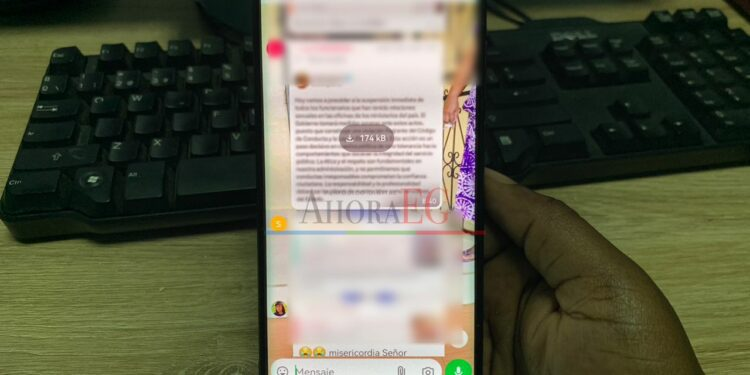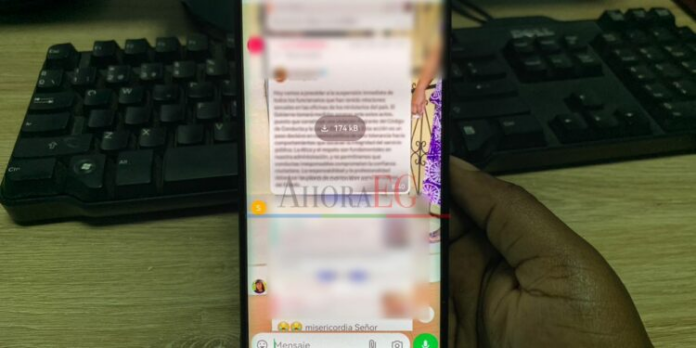On November 4, WhatsApp users in Equatorial Guinea experienced significant disruptions as the option to send and download multimedia files using mobile data was unexpectedly disabled.
Many users are concerned that this interruption may be linked to recent government directives urging telecommunications operators to implement measures to restrict access to inappropriate content, following the emergence of explicit videos featuring Baltasar Ebang Engonga, the former Director General of the National Financial Investigation Agency (ANIF).
As a result of the changes, users are now unable to exchange photos, videos, and audio files over mobile data connections, forcing them to rely exclusively on Wi-Fi networks for sharing such content.

This decision has sparked frustration among the population, with many questioning whether the entire country should pay the price for the actions of a few individuals.
Critics argue that this measure seems disproportionate and punitive, impacting thousands who rely on these platforms for both entertainment and professional or educational activities.
In a time when digital communication is essential, users are raising concerns about the justification of restricting access to key communication functions.
The current limitations not only hinder effective communication but also interfere with daily activities.
This situation has ignited fervent debate among citizens, many of whom believe the government’s approach is more focused on control than on facilitating communication.
To date, authorities have not provided any explanations regarding the reasons behind this restriction or its expected duration.
In a landscape where timely information and communication are more critical than ever, the lack of transparency exacerbates public concern.
The lingering question remains: Is it fair for the entire population to suffer the consequences of the actions of a few?

